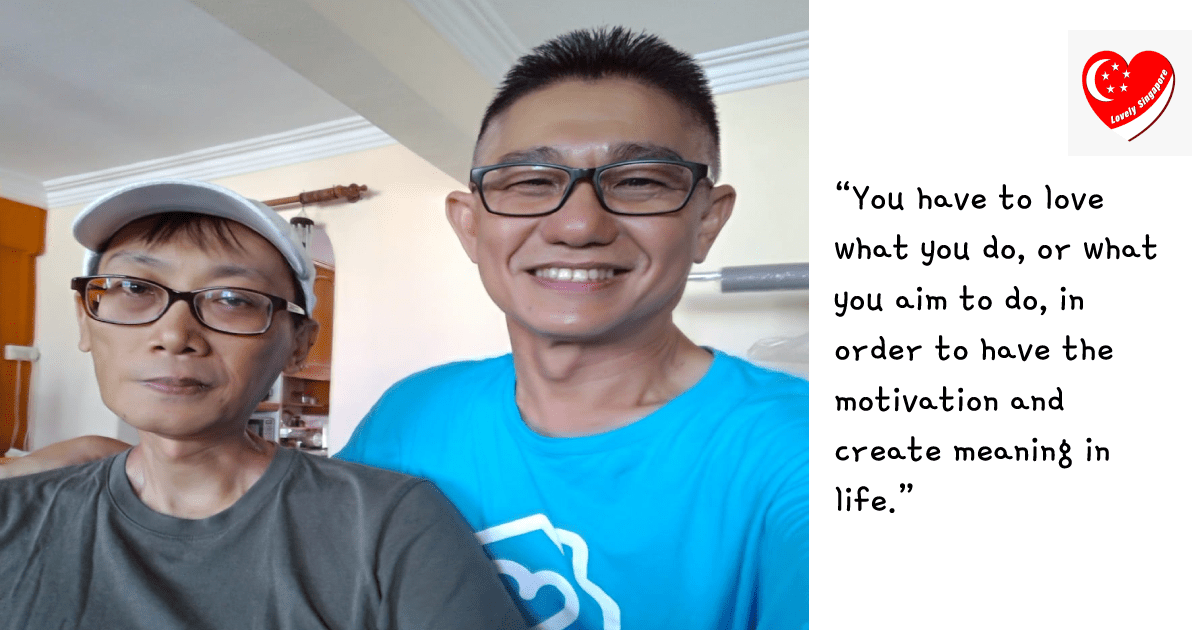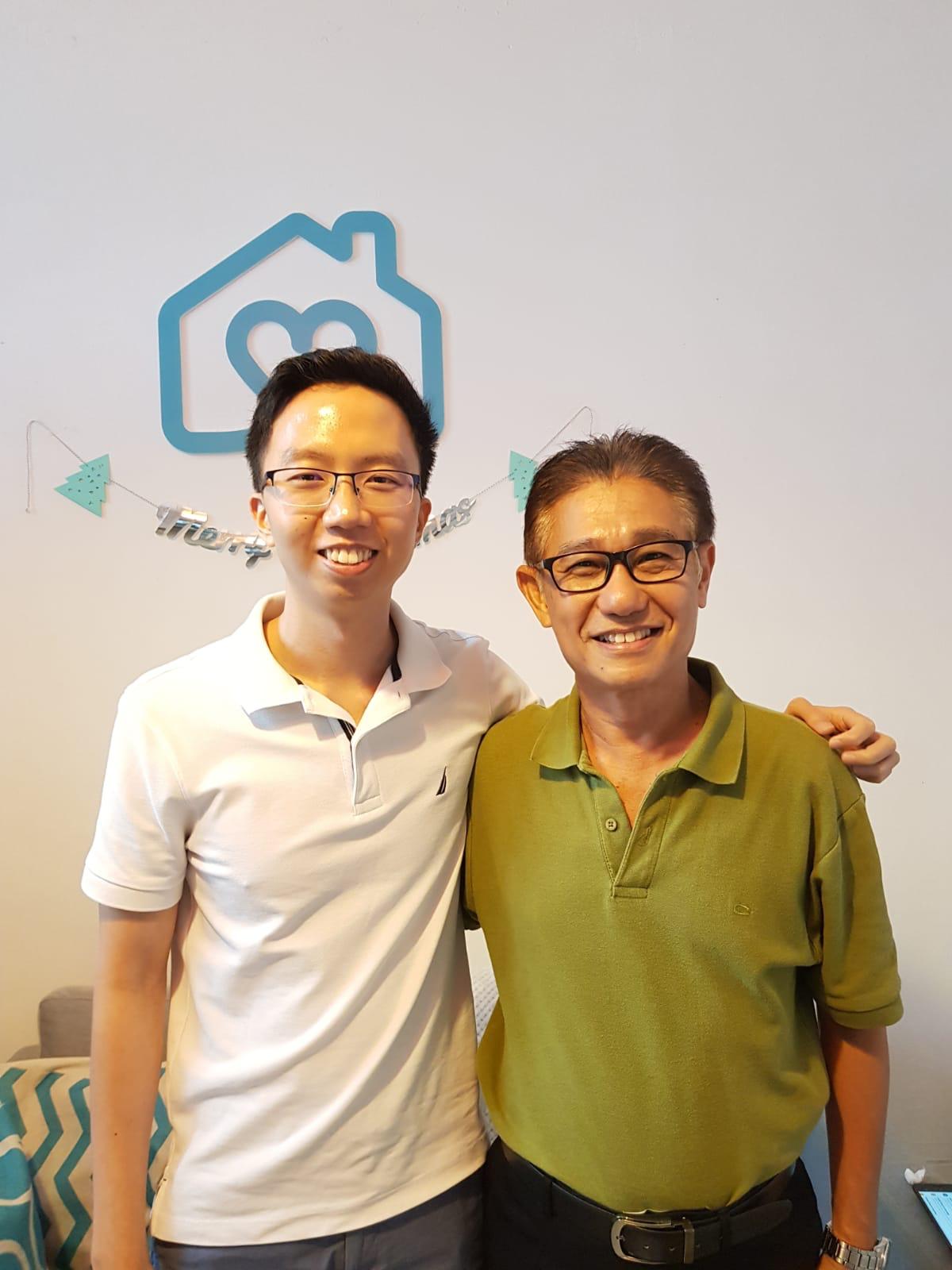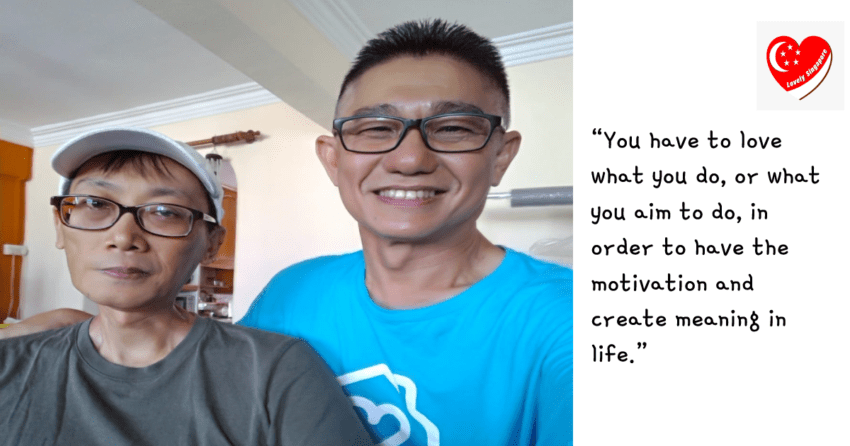Retirement can mean different things for different people. After decades of participating in the workforce, most of us would rather spend our retirement years in the company of family and friends, travelling the world, discovering (or rediscovering) a hobby — or a combination of all three. However, for some among us, retirement not only marks the end of work, but the beginning of a more meaningful life.
Meet Jonathan Chan, a 64-year-old retiree and former engineer with the Republic of Singapore Air Force (RSAF) who now takes care of elderly patients as a freelance professional caregiver.

Paying it forward
Becoming a professional caregiver wasn’t always part of the plan for Jonathan, who spent 40 years working for the RSAF. His career choice made sense, considering his interest in engineering, which developed all the way back in secondary school. “I’ve always wanted to be an engineer and get my hands dirty. So when the opportunity came up, my father encouraged me to sign on with the Air Force. He said it was a good skill to have,” recalls Jonathan. “Besides, we had a big family, so it was one fewer mouth to feed!”
Life eventually took a turn for the unexpected. About 10 years ago, Jonathan’s mother, then 82 years old, suffered a major stroke, which required her to be on nasogastric intubation, or feeding food and medicine via a tube through the nose. Compounding the situation was when Jonathan’s father, who suffered from Parkinson’s Disease, passed away a few years later due to acute respiratory disorder. This sequence of events placed great strain on the entire family.
The only light of hope were the healthcare professionals that Jonathan met at the nursing homes. “Both my parents, at different times, required round-the-clock care. As much as I wanted to help, I didn’t have the professional training, which was why the nursing home became the next best option,” Jonathan shares.
One thing he keenly remembers is how the nursing home staff went above and beyond their call of duty. “Most of these caregivers were foreign workers. They were working away from home and taking care of someone else’s family members. Yet, they had so much passion, care and concern. They really made a difference in the final months of my parents’ lives.”
When his retirement was right around the corner, Jonathan knew exactly what he wanted to do with all the time he had on hand. “I wanted to contribute to society in any way that I could, specifically for the elderly people. After the experience with my parents and what I witnessed at the nursing homes, it’s the least I could do.”
Upskilling for the greater good
There is a lot that goes into becoming a professional caregiver, especially those that take care of the elderly. Aside from providing food and making sure that medications are topped up and consumed on time, there were knowledge and skill sets that Jonathan simply didn’t have. Without the know-how but a heart in the right place, Jonathan decided to enrol himself in several courses.
The first was a two-month course at the National Trades Union Congress Learning Hub, where he achieved a WSQ Certificate, specifically in Community and Social Service (Eldercare). Here, he learnt how to perform Activity in Daily Living, or ADL, such as feeding, general mobility and wardrobe changes.
The second was a four-month course at the Health Management International (HMI) Institute of Health Sciences. This was where he learnt more advanced skills, such as assisting physiotherapists. While there, Jonathan also spent up to six months at Ren Ci Community Hospital and St Andrew’s Nursing Home, where he put knowledge into practice for the first time. By the end of the course, he achieved the WSQ Higher Certificate in Healthcare Support (Therapy Support).
Finally, as a mandatory part of the course, Jonathan learnt basic first-aid lessons and how to operate an Automated External Defibrillator at the Singapore Emergency Responder Academy.
During his training, Jonathan came to know about Homage, a personal care service provider that provides holistic home and community-based caregiving to seniors and adults. After performing his due diligence, Jonathan decided to work with Homage as a freelance professional caregiver in October 2018.

Touching hearts and earning trust as a professional caregiver
Over the years, Jonathan has personally taken care of over 50 people, the majority of them being elderly patients with varying degrees of physiological or neurological conditions. When Jonathan was working as a Homage Care Professional, a patient that left a deep impression was Frank (not his real name), a 92-year-old whose family requested companionship, meal arrangement, and someone to keep him active.

Even though every patient has a different story and healthcare needs, the cases all begin the same way. “It is difficult to earn their trust, at least at the beginning.” Jonathan shares. “After all, you are not part of the family, so it’s natural for the patients and family members to be hesitant about your presence. The key is to focus on the patients, serve their needs and the trust comes after that.”
Over the next several months, Jonathan and Frank became fast friends. Firstly, similar to Jonathan, Frank worked as a mechanical engineer and repaired construction vehicles. Secondly, Jonathan would often make Frank’s favourite dish: ABC soup. “Frank also loved his coffee to be extra thick, but it wasn’t too healthy for him,” Jonathan says with a laugh. “I still made it for him sometimes, but I told him not to tell his wife.” In between caregiving duties, the two would even watch sports, documentaries and discuss what they were watching.
This became the template by which Jonathan approached his patients. “Over time, the patients and I build rapport. They can see that I care for them with sincerity and passion, and the trust grows from there — and it’s not just the patients themselves. It’s also important to earn the trust of their family members.”
A new life after retirement
Retirement is a hot-button issue that’s been in the news as of late. With the decision to raise the retirement age from 65 years old to 70 years old, there are concerns about whether Singaporeans could ever stop working.
The truth is that raising the retirement age is about supporting older Singaporeans, especially those who wish to continue working. The concept of ‘work’, too, is up to the individual. As much as Jonathan chose to become a professional caregiver after retirement, not everybody needed to follow the same footsteps.
Instead, he believes that it is more important to find your passion and engage in lifelong learning, “When one has the required skills, knowledge and attitude to perform the job professionally, the ultimate reward is job satisfaction,” he shares. “You have to love what you do, or what you aim to do, in order to have the motivation and create meaning in life.”
